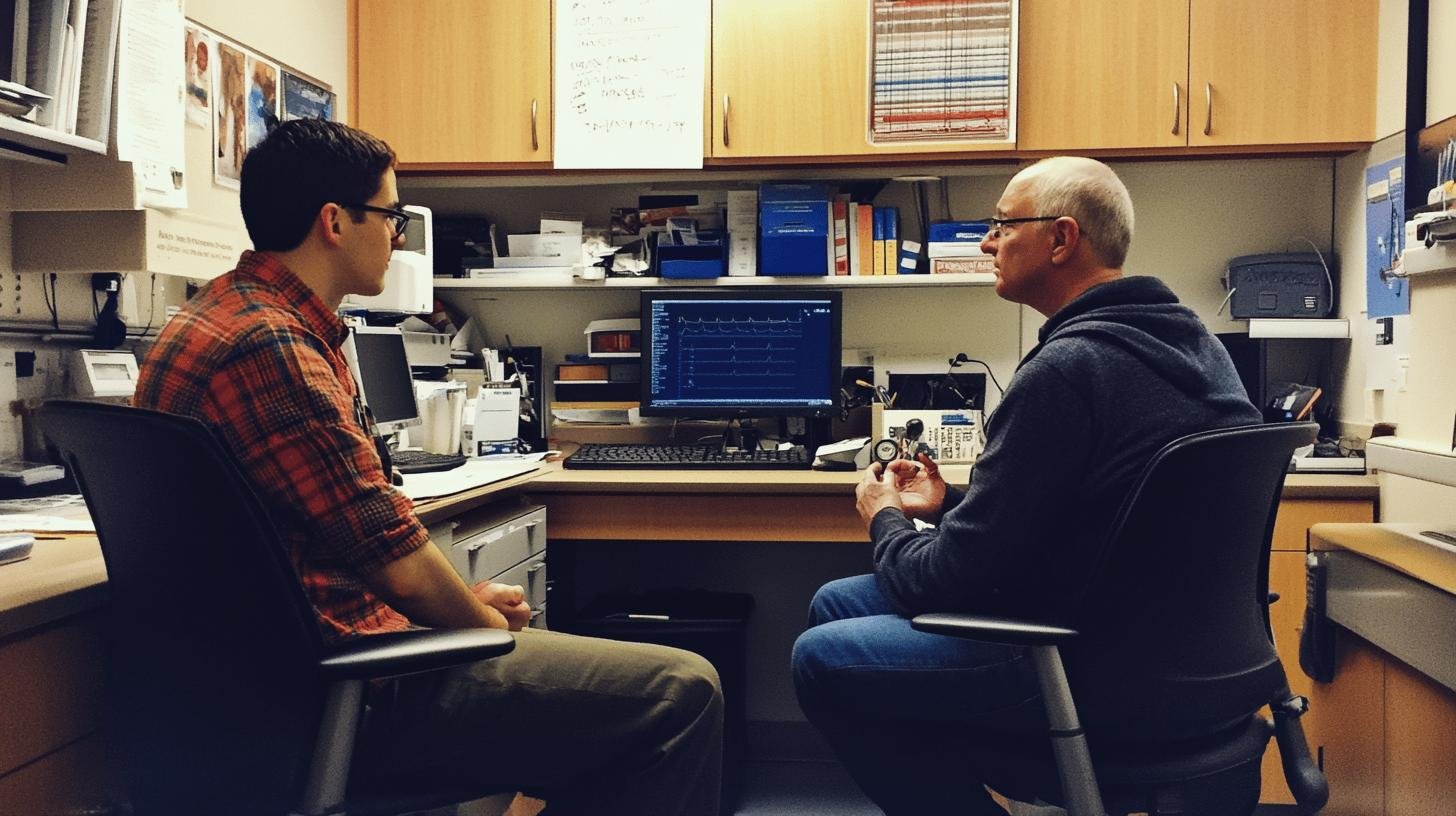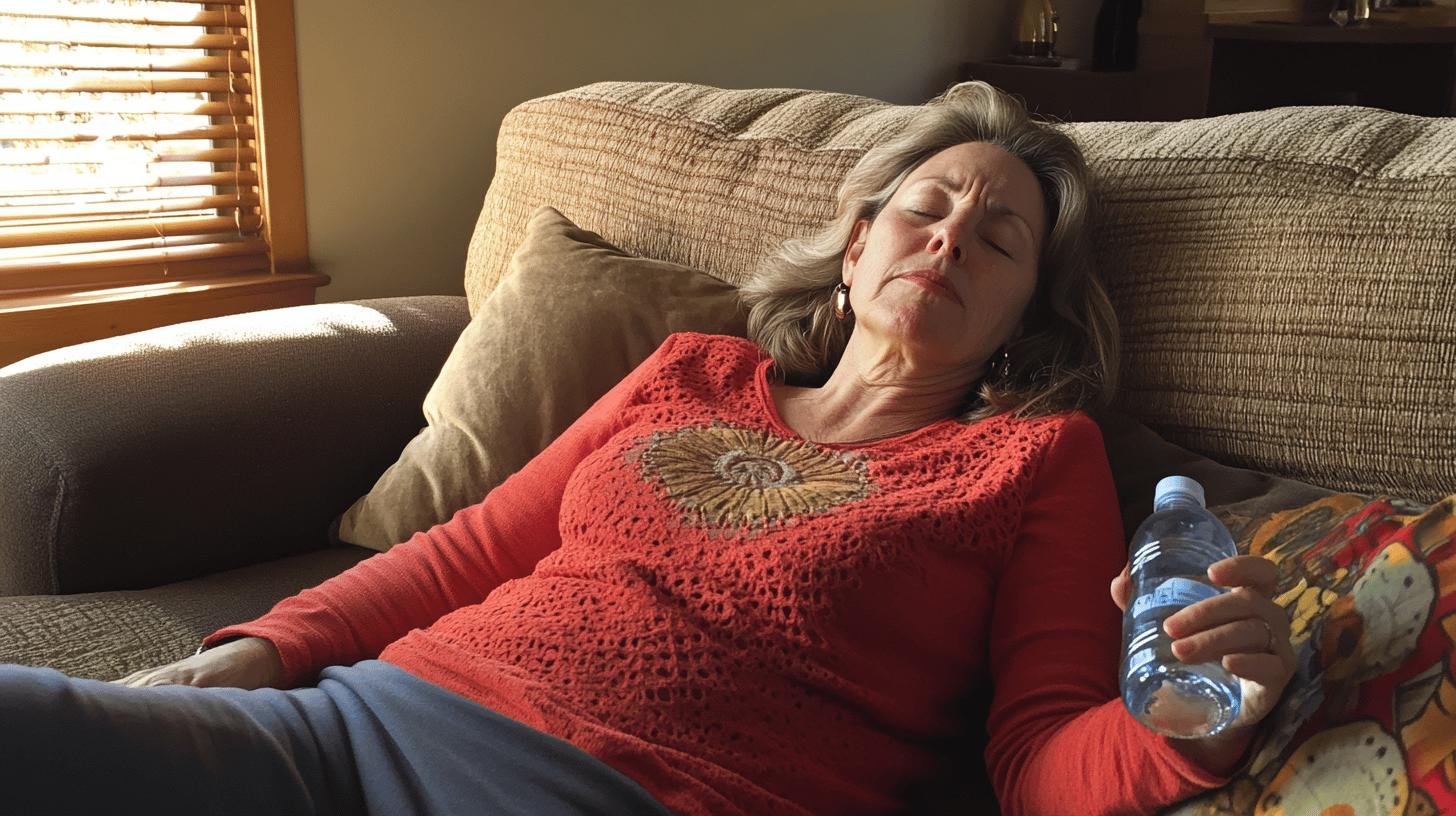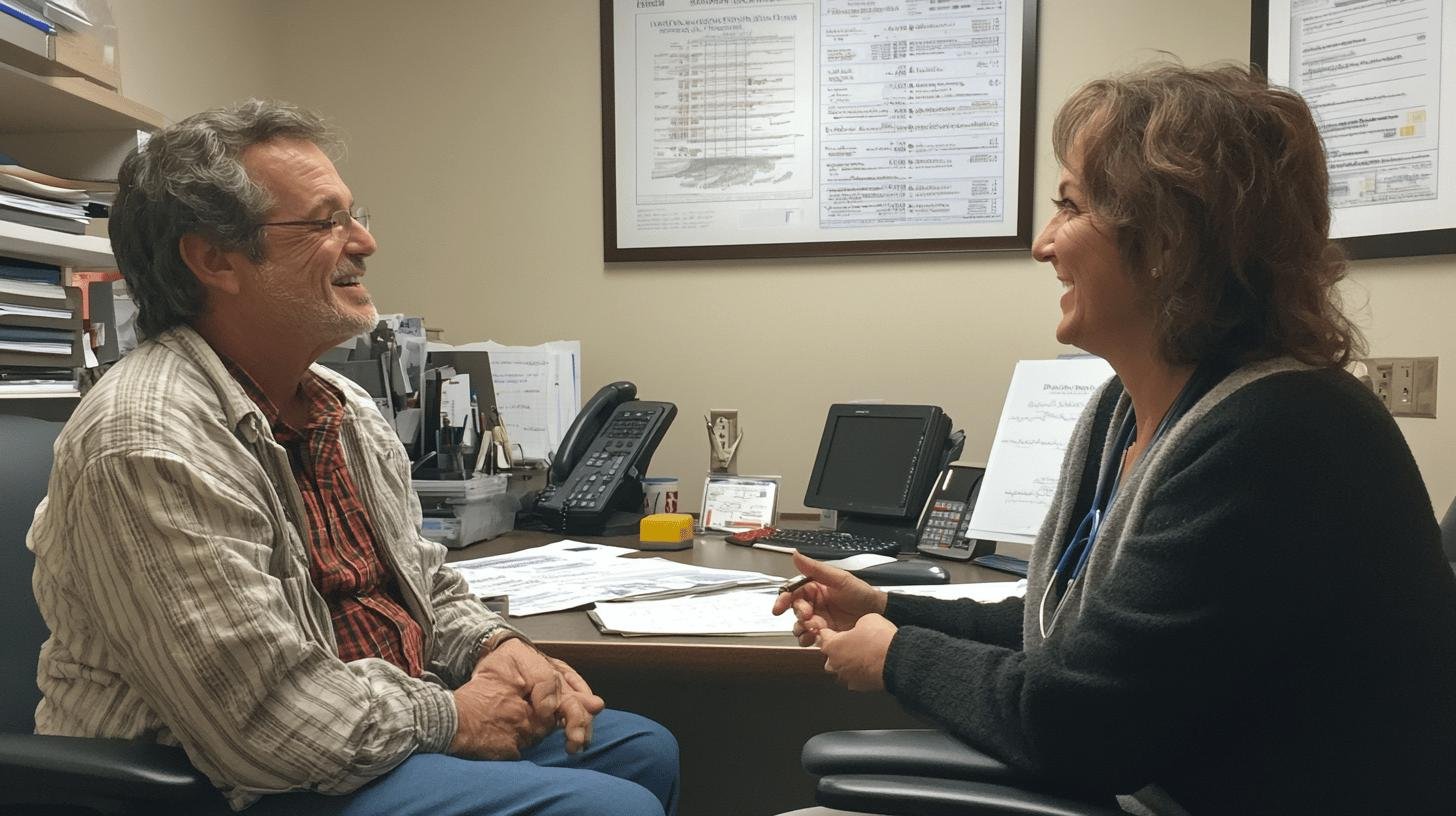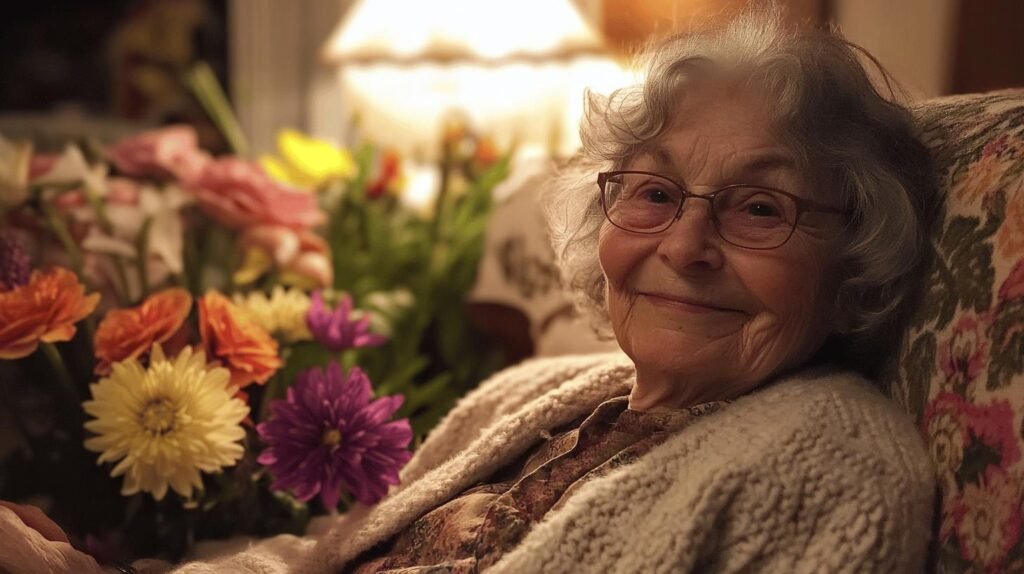TL;DR:
- Managing cancer involves a personalized treatment plan based on cancer type, stage, and individual needs.
- Main treatment options: surgery, chemotherapy, radiation, immunotherapy, targeted therapy.
- Emotional support resources include counseling, support groups, and family counseling.
- Common side effects: nausea, fatigue, pain, hair loss, skin changes, appetite loss, anemia; management strategies exist for each.
- Lifestyle changes like diet, exercise, and quitting smoking improve health and mood.
- Direct Primary Care (DPC) provides personalized cancer care, focusing on patient needs and longer appointments for tailored treatment.
What does managing cancer mean, really? The term might sound clinical, but it’s all about crafting a personalized battle plan for each individual facing cancer. This approach considers your type of cancer, stage, overall health, and personal preferences—pretty thoughtful, right? We’re talking about using both time-tested treatments like surgery and chemo, as well as newer options like clinical trials. Our journey through managing cancer is like having a team of experts at your side, continuously tweaking your plan to give you the best shot at a healthier tomorrow. Let’s break it down!
What Does Managing Cancer Mean: A Compassionate Approach
Managing cancer means developing a treatment plan that fits you perfectly. But what does managing cancer actually entail? It involves creating a strategy based on your specific type and stage of cancer, health, and personal preferences. Consider it a personalized guide to navigate your journey.
Traditional therapies like surgery, chemotherapy, and radiation are the primary options. However, experimental treatments, such as clinical trials and complementary therapies, also offer innovative possibilities.
This management isn’t a one-time task; it’s an evolving process. Continuously reassessing and adjusting your treatment plan is essential. This flexibility is necessary as your needs and cancer’s behaviour may change over time. Think of it like sailing a ship—keeping an eye on the horizon and adjusting sails as needed.
Personalized care plays a crucial role, and your involvement is key. Maintaining open communication with your healthcare team helps tailor your path to your changing needs and goals.
Exploring Cancer Treatment Options

When considering cancer treatments, there is a wide array of choices. The mainstays include surgery, chemotherapy, radiation therapy, immunotherapy, and targeted therapy. Each option has a distinct role in cancer care.
- Surgery physically removes tumours.
- Chemotherapy uses drugs to combat cancer cells throughout the body.
- Radiation therapy directs high-energy rays at cancer cells in specific areas.
- Immunotherapy boosts your immune system to fight cancer.
- Targeted therapy focuses on molecules within cancer cells to stop their growth.
Advancements in cancer treatment have significantly improved outcomes. Today, better screening techniques and therapies focus on both survival and quality of life. These innovations result in fewer side effects and more personalized care, helping patients balance treatment with everyday life.
Coping with Cancer Diagnosis and Emotional Support
Receiving a cancer diagnosis can unleash a wave of emotions like sadness, fear, anger, or disbelief. It’s normal to feel a mix of these, and it’s okay to feel overwhelmed sometimes. You’re not alone; there are ways to navigate this emotional challenge.
Here’s a list of emotional support resources:
- Counseling
- Support groups
- Mental health services
- Peer support
- Family counseling
Seeking emotional support is like finding a lifeline. Speaking to a counselor or joining a support group can make a big difference. These resources provide safe spaces to express feelings and gather strength from those who understand your experience.
A strong support network—comprising friends, family, and support groups—offers essential emotional support. It provides encouragement and helps you find hope when you need it most, empowering you to face each day with courage and optimism.
Managing Cancer Treatment Side Effects

Cancer treatment side effects can be a continual challenge. Common issues include nausea, fatigue, pain, hair loss, skin changes, appetite loss, and anemia. Having a plan in place to manage these effects is key.
- Nausea: Small, frequent meals and ginger tea can help.
- Fatigue: Balance rest with light exercise.
- Pain: Manage with medication or alternative therapies like acupuncture.
- Hair loss: Use wigs or head coverings.
- Skin changes: Special moisturizers may be needed.
- Appetite loss: Try nutrient-dense snacks.
- Anemia: Include iron-rich foods or supplements.
Talking with your healthcare provider is vital. They can help create a symptom management plan tailored to your needs, ensuring it’s adjusted as necessary. Remember, you are actively involved in managing your care.
Enhancing Quality of Life While Living with Cancer
Living with cancer can be challenging, but lifestyle changes can ease the journey. Consider dietary changes, regular physical activity, and quitting smoking to boost health and treatment effectiveness. These habits support physical health and uplift your spirits.
Physical activity and nutrition play a central role in enhancing quality of life. Exercise helps combat fatigue and lift mood. Simple activities like walking or yoga make a significant impact. Nutrition acts as fuel, providing essential nutrients to fight cancer and effectively handle treatments.
Maintaining Daily Activities
Keeping up with daily routines can feel daunting. Planning and prioritizing tasks can ease the burden. Start by listing tasks and tackling them one at a time. Don’t hesitate to ask for help from friends and family. Allow yourself to take breaks and adjust expectations, making daily activities manageable.
The Role of Direct Primary Care in Cancer Management

Direct Primary Care (DPC) offers personalized and affordable cancer care. Patients pay a regular fee covering various services, eliminating the insurance middleman. This approach focuses more on you and your needs rather than billing codes.
DPC excels in patient-centred care by providing more face time with healthcare providers. Longer appointments mean doctors can tailor treatment strategies. This approach proves invaluable for cancer patients, ensuring care plans fit your life. So, consider the benefits of more focused, individualized care that puts you at the centre of your health journey.
Final Words
Managing cancer means creating a plan built around individual needs in the middle of the action. From traditional treatments like surgery and chemo to new therapies, we’ve highlighted the ongoing evaluation needed for cancer care.
Treatment options like immunotherapy and targeted therapy show how advances aim to balance survival and quality of life. Managing emotional responses and seeking support helps patients tackle a diagnosis head-on.
Joining the conversation about dealing with side effects, enhancing life quality, and maintaining daily habits and lifestyle changes supports overall well-being.
The role of direct primary care showcases how patient-centred strategies offer a costly alternative for managing cancer and ensuring more meaningful healthcare relationships.
FAQ
What is chronic cancer?
A: Chronic cancer is cancer that persists over a long period and may require ongoing treatment to manage rather than cure it.
Is cancer considered chronic or acute?
A: Cancer can be both chronic and acute. Chronic cancer requires long-term management, while acute cancer is typically treated aggressively for a cure.
What does it mean when cancer is manageable?
A: Manageable cancer means that with treatment, the cancer can be controlled or maintained in a stable state, reducing symptoms and improving quality of life.
How long can cancer be managed?
A: The duration for which cancer can be managed varies greatly among individuals, depending on the type and stage of cancer, treatment response, and overall health.
How long can you live with stable cancer?
A: With stable cancer, people can live several years, especially when treatments effectively control the disease and maintain a good quality of life.
Is stable cancer good?
A: Yes, stable cancer indicates that the cancer has not progressed, which is often an encouraging sign, allowing individuals to continue their current treatment plan.
How do you manage cancer?
A: Cancer management involves a combination of treatments, such as surgery, chemotherapy, radiation, or newer therapies, alongside lifestyle changes and supportive care.
Do oncologists tell you how long you have to live?
A: Oncologists can provide estimates based on average survival rates but can’t predict exact timelines as each patient’s situation is unique.
How long can you do maintenance chemotherapy?
A: Maintenance chemotherapy can continue as long as it is effective in controlling the cancer and the side effects are manageable for the patient.
What are the latest cancer treatments?
A: The latest cancer treatments include advanced techniques such as immunotherapy and targeted therapy, which aim to improve survival and quality of life.

